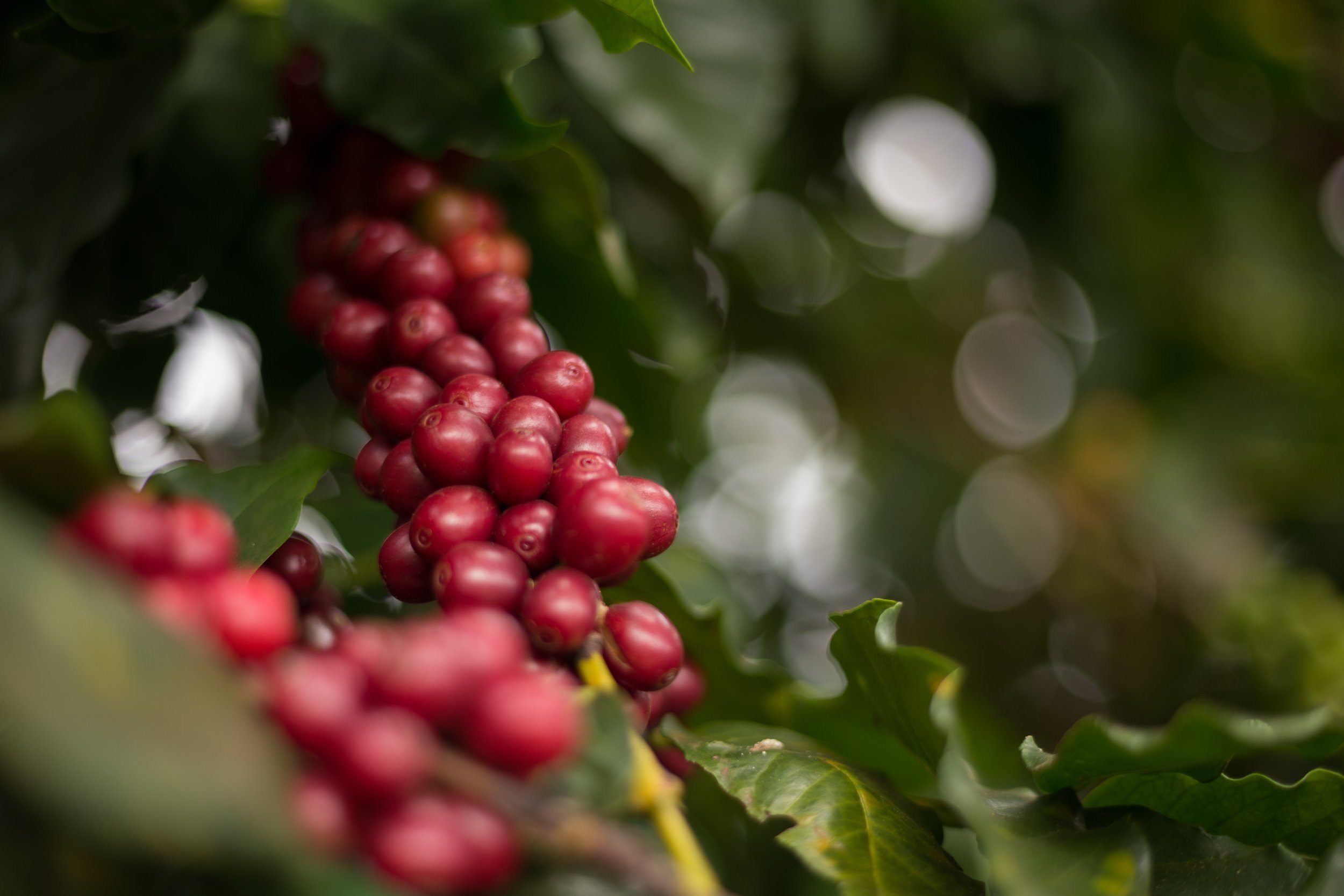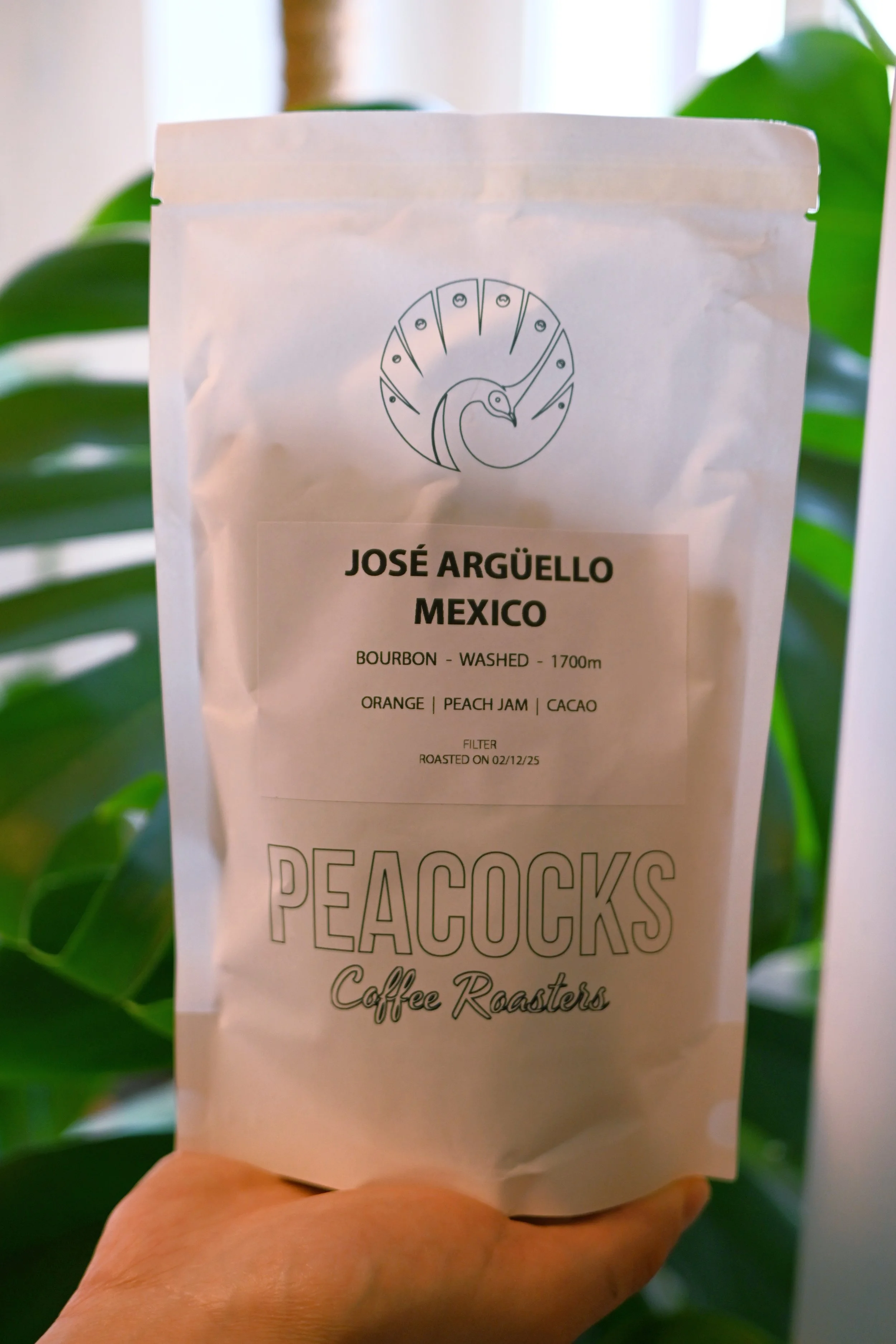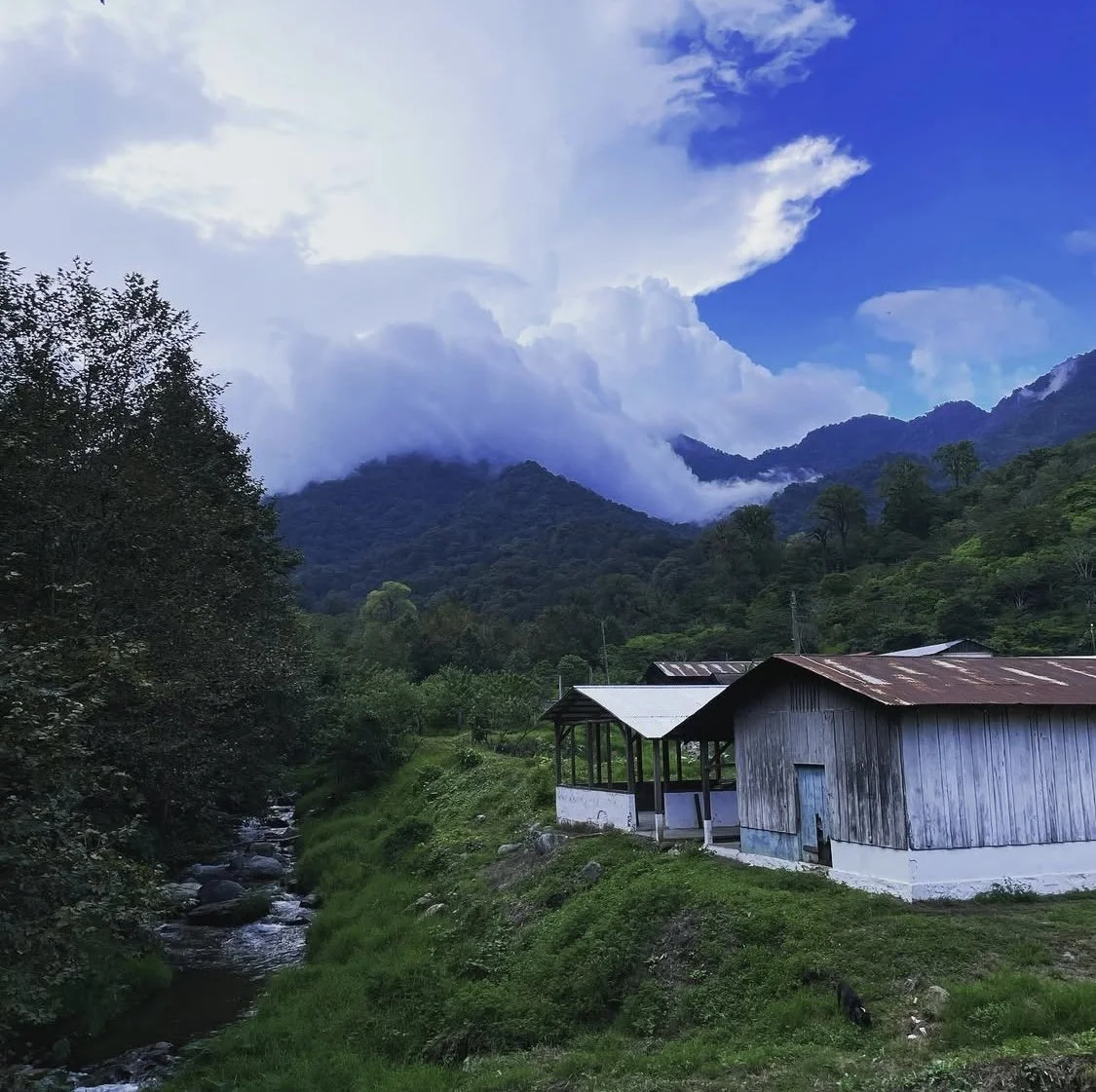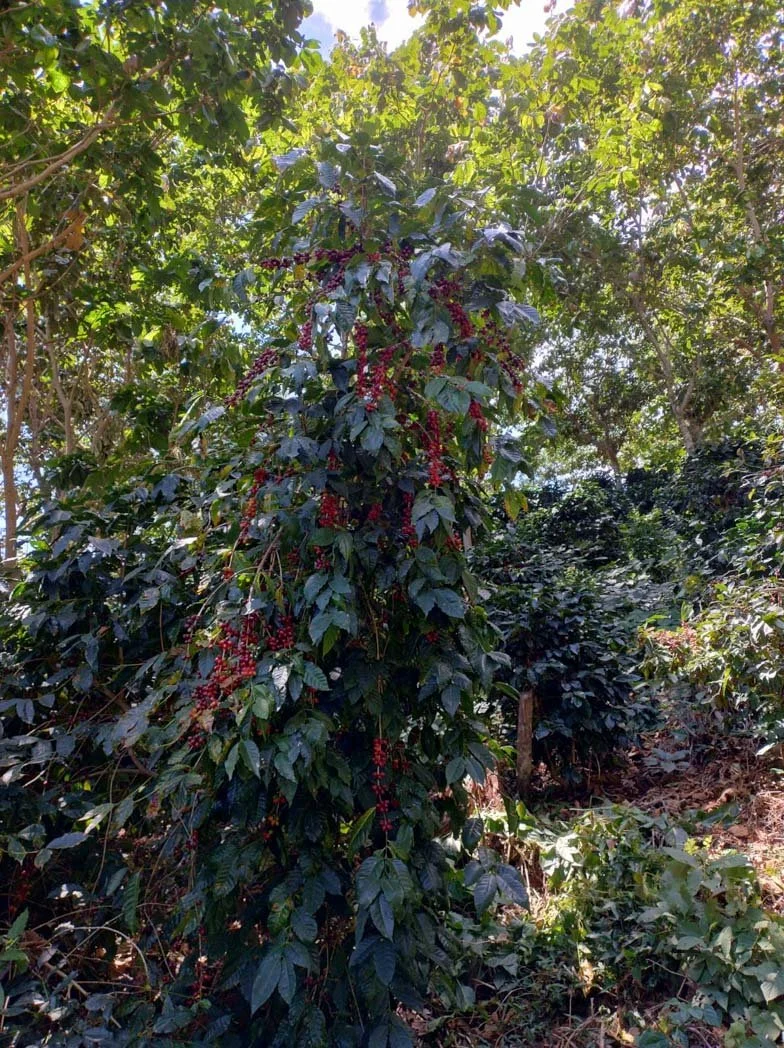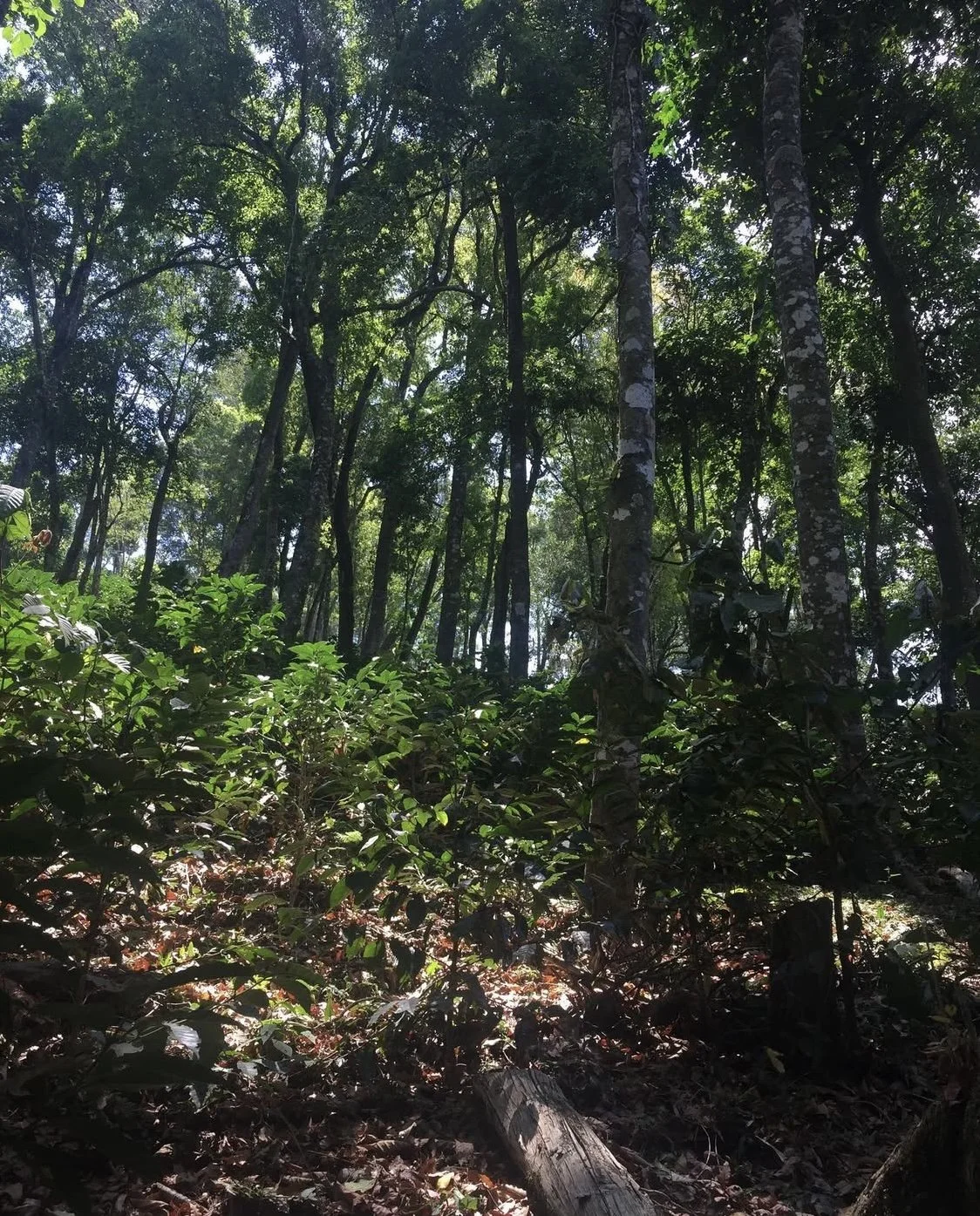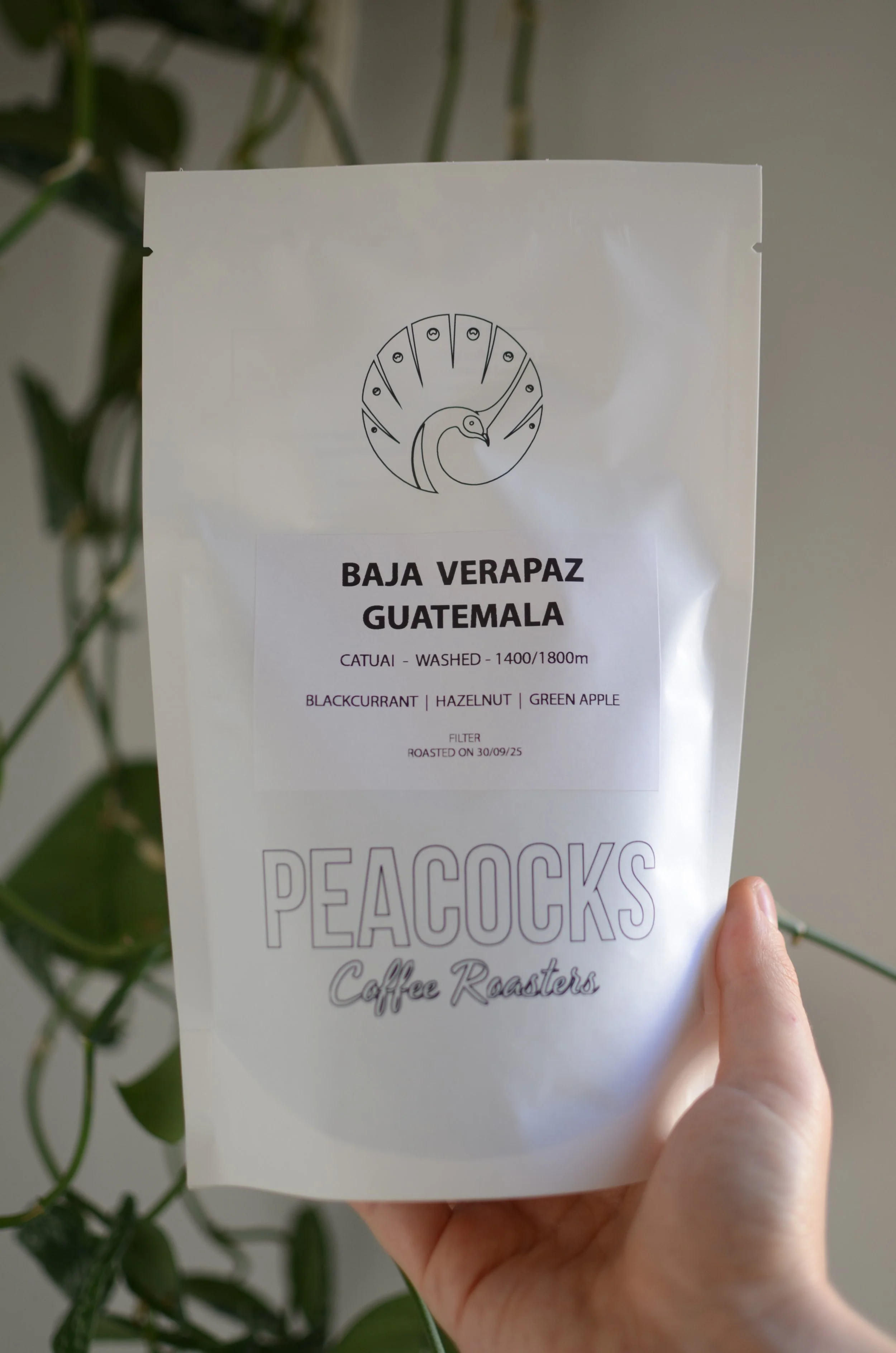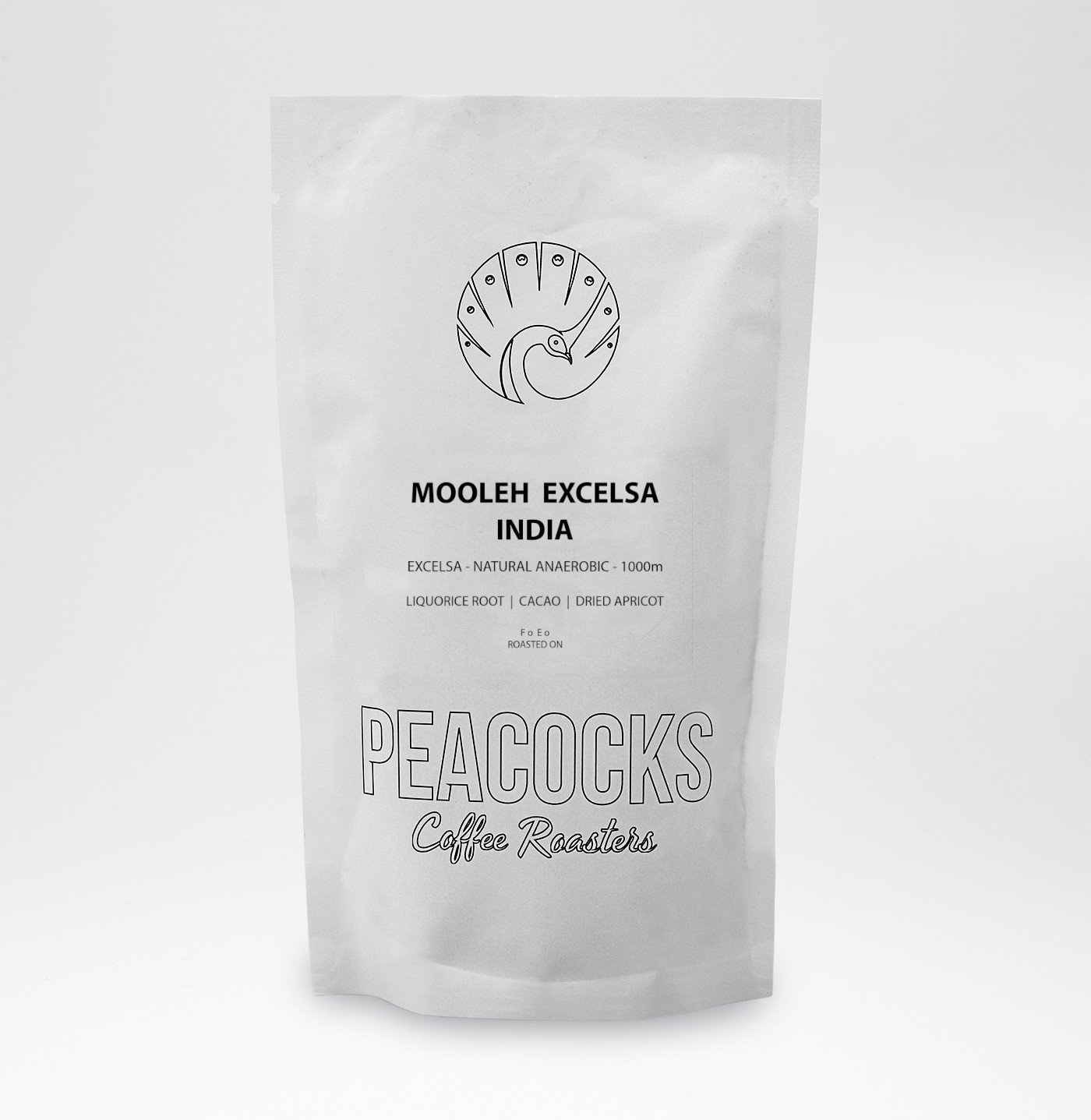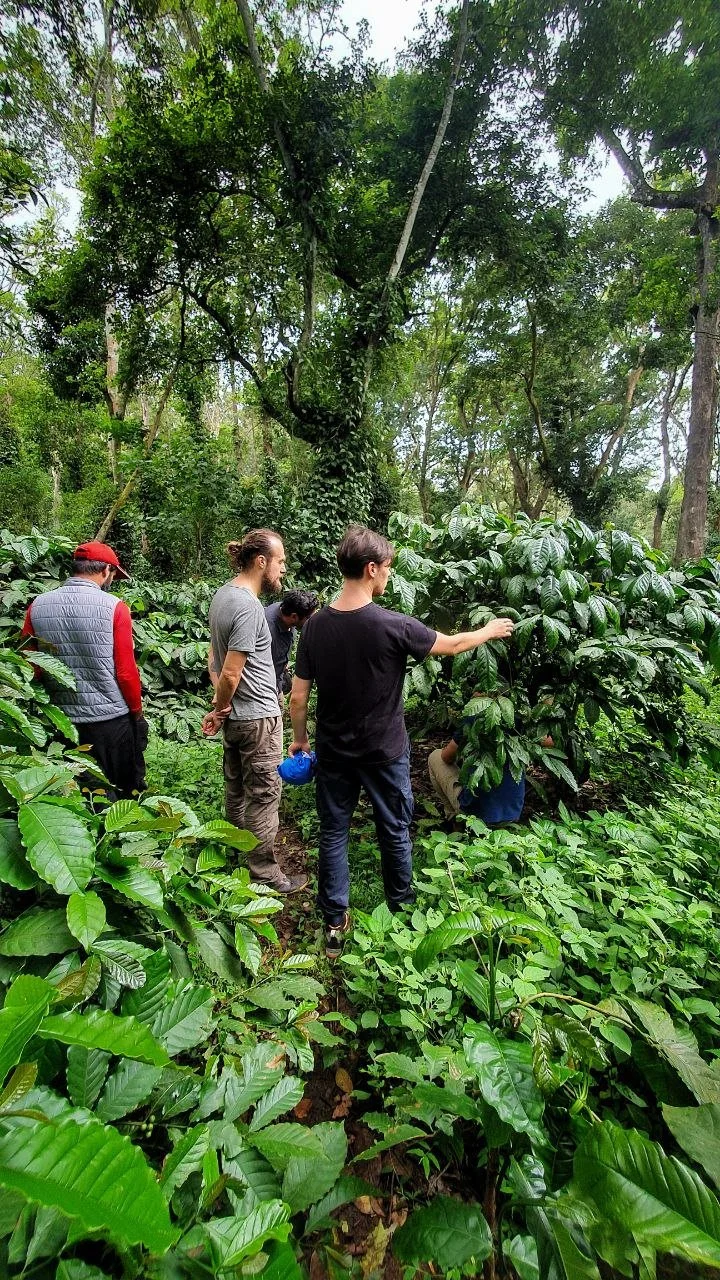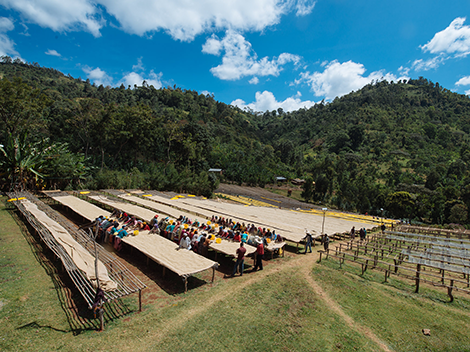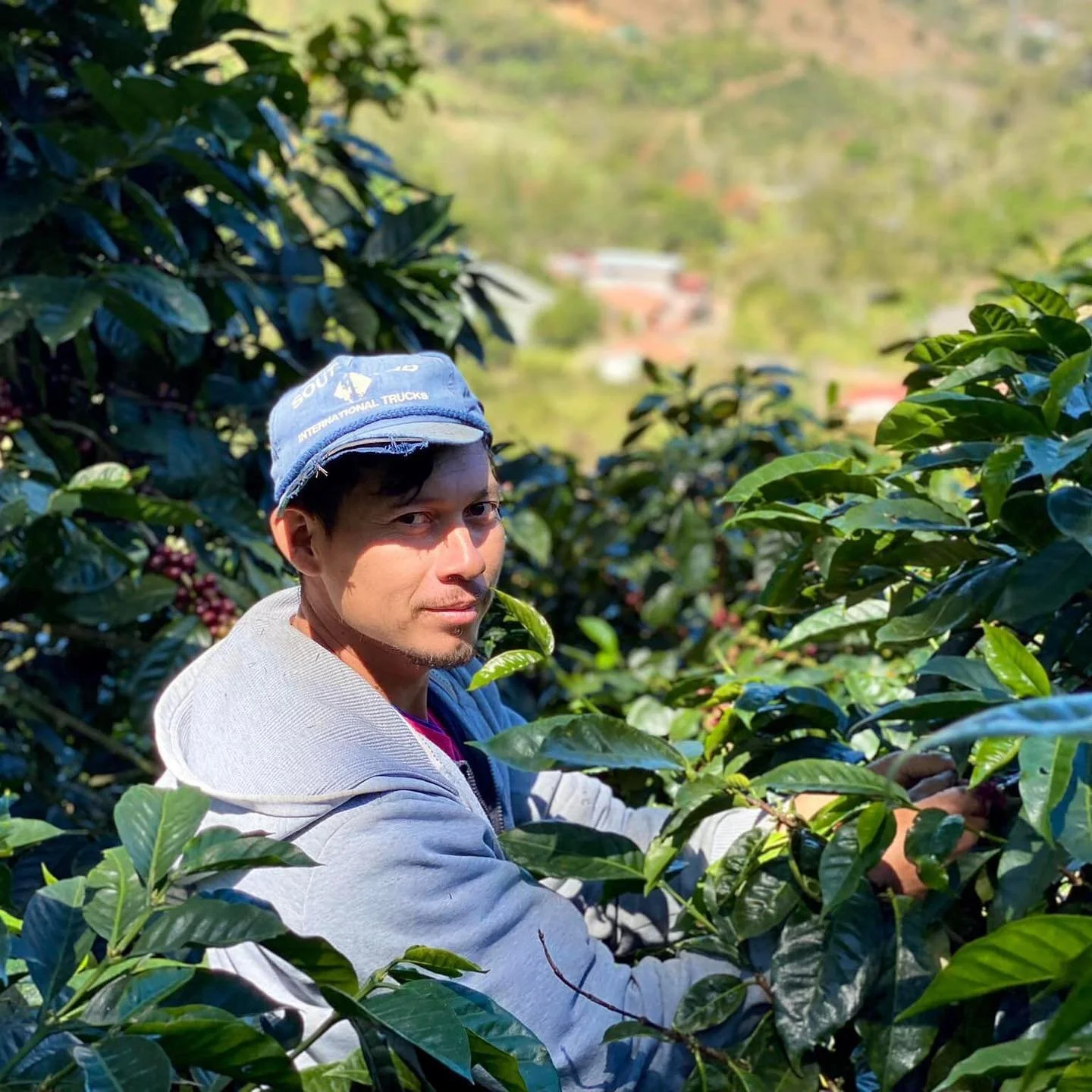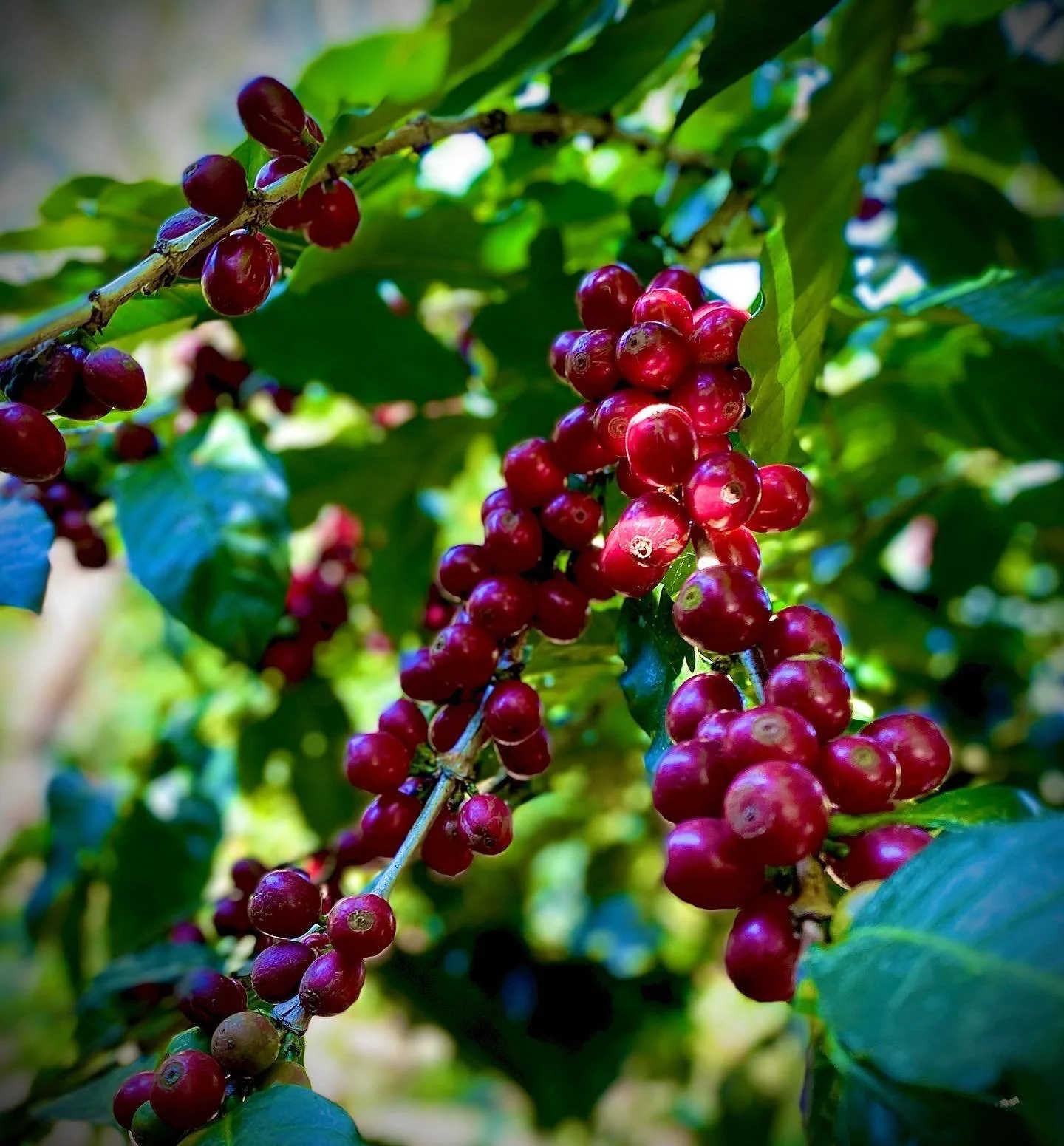Origin: Brazil, Socorro municipality
Producer: Ellen Fontana
Farm: Fazenda Fronteira
Altitude: 1350 masl
Variety: Yellow Catuaí, Mundo Novo, Obatã, Yellow Bourbon
Process: Natural
About the producer
Ellen is the fifth generation of coffee growers in her family, but much of the knowledge she brings to the land today comes from her own learning journey and the technical support provided by Capricornio Coffees. When her grandfather passed away and she suddenly found herself responsible for the estate, Ellen asked herself a simple but profound question: "How can I do this right?" That question became the seed of a new way of farming.
Her approach is rooted in minimal interference and deep respect for nature, an ethos that’s transforming both her land and her community. Of the 100 hectares that make up Fazenda Fronteira, only 23 are used for coffee cultivation. These coffee plants thrive in an agroforestry system, growing in harmony with banana, avocado, and eucalyptus trees. This integrated model not only improves biodiversity but also provides shade, enhances soil health, and diversifies income sources.
Ellen’s work goes beyond her own fields. In collaboration with neighbors and supporting organizations, she’s actively preserving nearly 70,000 trees in surrounding forest areas and safeguarding the local river ecosystem. She’s helping to introduce alternative livelihoods like honey production and composting, reducing dependency on a single crop while empowering local farmers. Pest control is handled naturally, encouraging beneficial insects like wasps that prey on coffee borers and her efforts have significantly reduced water use.
Since entering the specialty coffee market in 2013, Ellen has seen steady growth. But the journey hasn’t been without setbacks, like the severe frost in 2021 that claimed about 10% of her coffee trees. “Every year brings a new challenge,” she says. “Climate adversities are something we simply need to live with.” These experiences have only strengthened her commitment to ecological resilience and long-term sustainability.
About agroforestry practices, variety and processing
Today, Fazenda Fronteira is a living example of regenerative agroforestry in action. With 21% of its area dedicated to coffee, 20% to protected forest, and the rest preserved as wild land, Ellen is working to populate the estate with a diverse canopy of native and productive species. She’s transitioning to organic fertilization, using compost made from cow manure, banana peels, avocado skins, and other on-farm materials, closing nutrient loops and minimizing external inputs.
Ellen is also a key figure in Raízes do Mogi Guaçu (Conservation Roots), a forest restoration initiative led by Copaíba, the WWF, and a network of coffee growers. As part of this project, she recently planted over 1,700 native trees to help reconnect fragmented patches of the Atlantic Forest. “The other day, while driving Isabel to school, I saw a small jaguar,” she shares. “We’d never seen one so close. Since we started this reforestation, more wildlife is returning.”
Ellen’s story is not just about coffee, it’s about redefining farming through coexistence, where productivity and biodiversity grow side by side.
Blend of Yellow Catuaí, Mundo Novo, Obatã, Yellow Bourbon
Natural
Cherries are semi-automatically harvested in the estate and soon after dried. Coffee is then driven to the neighboring farm 7 Senhoras, where the hulling process is done. Then the parchment returns to Fazenda Fronteira where it is packed to be driven to Capricornio Coffees, where the color sorting and quality control process concludes.
In the cup we think it tastes like:
nougat, raisin and walnut.



